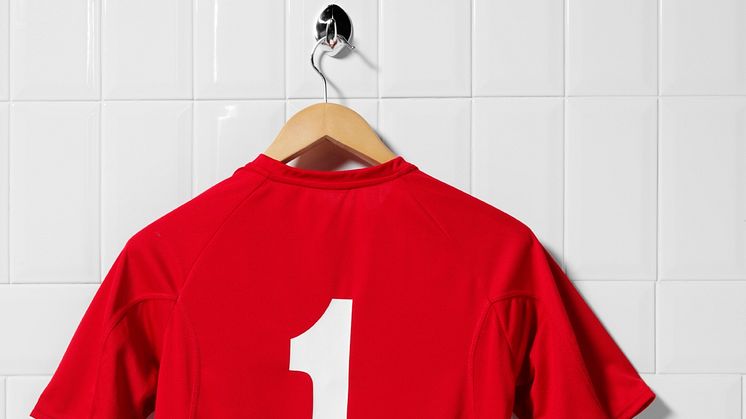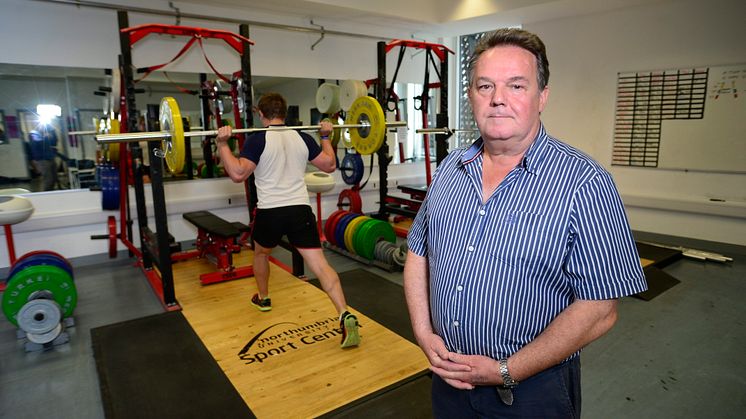
Press release -
Testosterone makes you see red
Putting on a red shirt can give individuals and teams a physical and psychological advantage and is the colour chosen by men with high levels of testosterone, says new research.
Academics at Northumbria and Sunderland University have shown for the first time that an individual’s testosterone levels are associated with the choice of colours they make when taking part in competition.
In new research published in Psychological Science, a journal of the Association for Psychological Science, it was found that males who chose a red counter in a competitive task had higher testosterone levels than other males who chose to be blue.
The findings could explain the phenomenal success of Manchester United FC, Ferrari’s Formula 1 team, and Tiger Woods.
Previous research has shown that wearing red can be an advantage in competition either by inhibiting opponents or by giving the wearers of red a mental advantage.
In this study the researchers recruited 73 men to perform a competitive task. The participants could choose either a red or blue symbol to represent them on the scoreboard and were asked to fill in a questionnaire to explain their reasons for choosing the colour. Saliva samples were taken both at the start of the study (before they knew about the competitive task) and at the end. The samples were analysed for levels of testosterone.
The findings indicated that those who chose red had higher testosterone levels and rated their colour as having higher levels of characteristics such as dominance and aggression than those who chose blue. It also found that the red colour choice only related to basal testosterone levels when it is actively chosen and does not subsequently elevate levels during competition.
The study is the first to show that testosterone levels are associated with an active choice of red in competition.
Northumbria University’s Dr Mark Wetherell and Dr Hannah Walden, worked with Dr Daniel Farrelly, who led the research, and Rebecca Slater, both from the University of Sunderland.
Dr Wetherell, Reader in Psychology, said: “Although many studies in this area suggest the role of testosterone in linking red colouration to outcomes like success in competition, very few studies actually measure the levels of testosterone directly.
“My expertise in psychobiology and Dr Hannah Walden’s expertise in biomedical sciences have assisted in this unique collaborative work, led by Dr Daniel Farrelly at Sunderland University.”
Dr Daniel Farrelly, Senior Lecturer in Psychology at the University of Sunderland, explained: “It has been shown that in other primates such as some species of monkeys, the redness of skin relates to both the individual’s testosterone levels and also their dominance. It is possible that a similar innate effect may occur in humans. However it may also be the result of cultural links we make with the colour red, as it is often used in warning signs such as ‘stop’ signs and traffic lights.
“This research shows that there is something special about the colour red in competition, and that it is associated with our underlying biological systems. The fact that individuals with high testosterone choose red for competition may explain why many sports stars wear red clothing, for example Tiger Woods famously chooses to wear a red shirt on the last day of a major competition. This research suggests that this may, unconsciously, signal something about their competitive nature, and it may well be something that affects how their opponents respond.”
The findings could also help explain why Manchester United have been so successful in the English domestic league and cups for such a long time. Red shirt-wearing Nottingham Forest is another English side to have won the European Cup twice, while Arsenal and Liverpool are two of the most decorated teams. And more famously when the England national football team won the World Cup in 1966, they also played in red instead of their normal white.
Dr Farrelly added: “This is the first study to look at whether biological factors, specifically testosterone which has been linked to characteristics such as dominance, aggression and competitiveness, may affect the choices we make in competitive scenarios. Also by allowing participants in a test to choose their colour, this study reveals that there may be something intrinsically different about ‘red’ competitors, that can give them an advantage.”
The research - ‘Competitors who choose to be red have higher testosterone levels’ - was produced between Dr Farrelly (University of Sunderland), Rebecca Slater (University of Sunderland), Hannah Elliott (Newcastle University), Hannah Walden (Newcastle University) and Mark Wetherell (Northumbria University). It is published inPsychological Science.
Date posted: May 17, 2013
Topics
Categories
Northumbria is a research-rich, business-focussed, professional university with a global reputation for academic excellence. To find out more about our courses go towww.northumbria.ac.uk
If you have a media enquiry please contact our Media and Communications team at media.communications@northumbria.ac.uk or call 0191 227 4571.







